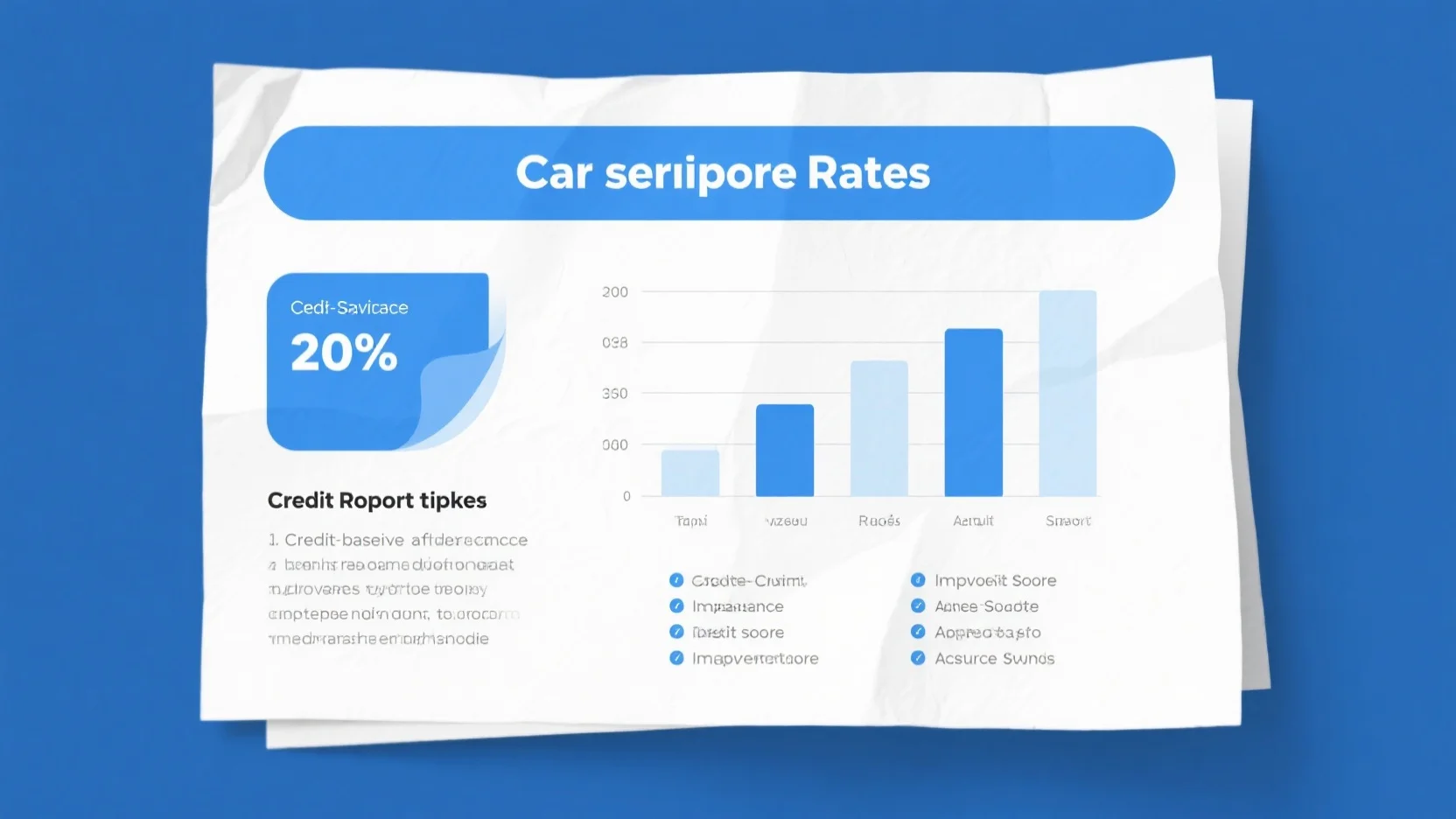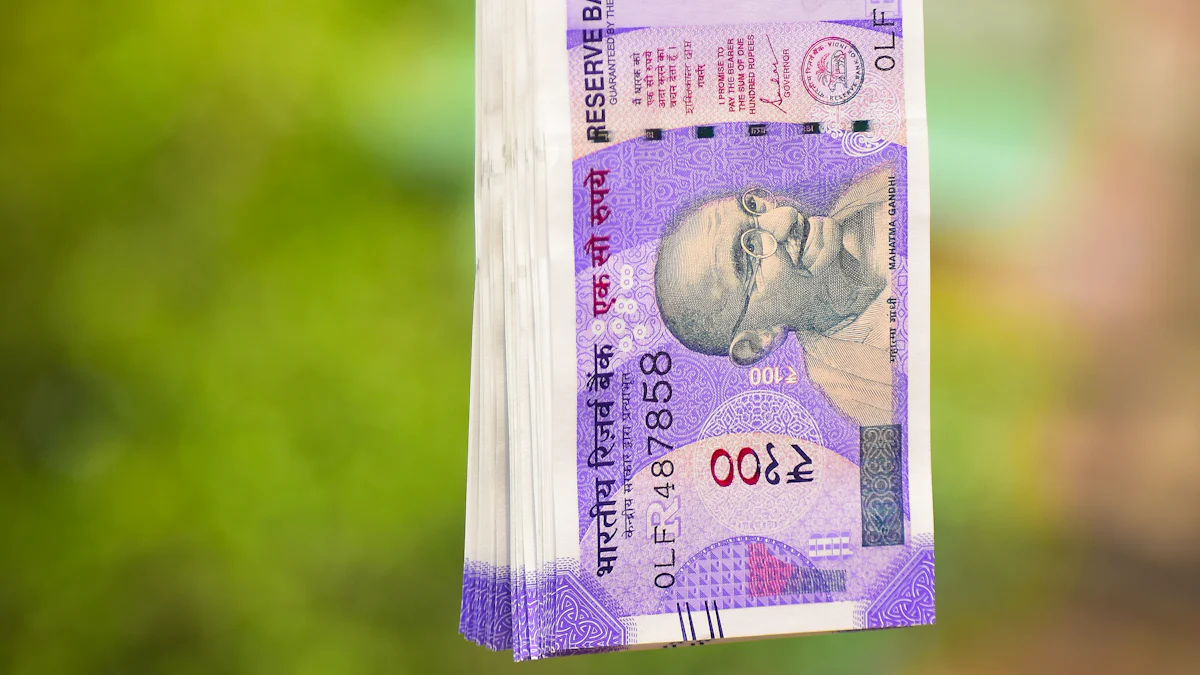
How a Good Credit Score Can Lower Car Insurance Rates

Image Source: pexels
A good credit score can lower your car insurance costs, leading to the question: does credit score affect car insurance rates? Insurance companies check credit scores to assess how responsible you are. Shockingly, 66% of Americans don’t know this happens. Drivers with great credit can save up to $2,000 a year, highlighting why maintaining good credit is very important.
Key Takeaways
- A good credit score can save you lots on car insurance. Insurance companies see high scores as being good with money.
- Paying bills on time and lowering credit card debt helps. These actions can make your insurance rates cheaper.
- Some states don’t let credit scores change insurance costs. In these places, rates depend on how you drive, not your money history.
Does Credit Score Affect Car Insurance Rates?
Why insurers use credit scores
Insurance companies check credit scores to decide your insurance cost. This is called credit-based insurance scoring. It helps them see how likely you are to file claims. A high credit score shows you are responsible with money. Responsible people are seen as less risky to insure. This system helps companies set fair prices for safe drivers. It also protects them from losing money on risky drivers.
The connection between credit scores and risk
Credit scores show how well someone handles money. People with low credit scores often file more claims. This makes them more expensive to insure. Drivers with high credit scores usually file fewer claims. They also tend to drive more safely. Insurers use this information to guess future risks. Then, they adjust insurance costs based on these guesses. Some think this method is unfair, but it is common in most states.
States where credit scores are not used in insurance pricing
Some states don’t allow credit scores to affect car insurance prices. These states are:
- California
- Hawaii
- Maryland
- Massachusetts
- Michigan
- Nevada
- Oregon
- Utah
Using credit scores for insurance can hurt people unfairly. States like California and Hawaii focus on fairness and keeping costs low. Other states base rates on driving habits and claim history instead.
Drivers in these states get insurance rates based on how they drive, not their money habits.
How Much Can a Good Credit Score Save You?
Premium differences by credit score tier
Car insurance costs change a lot with credit score levels. Drivers with great credit pay much less than those with bad credit. For instance, in 2023, people with great credit paid $1,070 less than the national average. Meanwhile, drivers with bad credit paid $4,145, which is $1,128 more than the average. This big difference shows how credit scores affect insurance prices. Insurance companies give lower rates to responsible people, making a good credit score very helpful.
Real-life examples of cost savings
Imagine a driver with great credit paying $1,500 yearly for insurance. Another driver with bad credit might pay over $3,500 for the same plan. That $2,000 difference could be used for groceries or bills. Over five years, saving $2,000 each year adds up to $10,000. These examples show how better credit scores can save a lot of money.
The financial burden of poor credit on insurance rates
Bad credit makes insurance much more expensive for drivers. Drivers with bad credit pay $2,198 more each year than those with great credit. This price gap has stayed the same since 2021. Paying more for insurance can make budgets tight and hard to manage. Improving credit scores helps drivers get cheaper insurance and save money.
Tip: Check your credit score often and work to improve it. A higher score can save you money on car insurance and other costs.
Steps to Improve Your Credit Score

Image Source: pexels
Pay bills on time
Paying bills on time helps improve your credit score. Late payments stay on reports for seven years. This can make getting lower insurance rates harder. Use reminders or automatic payments to avoid missing bills. Paying on time shows you are responsible with money. Insurers like this when setting your rates. This habit not only raises your score but also lowers costs.
Reduce credit card debt
Lowering credit card debt improves your credit utilization ratio. This is important for your credit score. Insurance companies check this when deciding your rates.
- Paying off balances reduces money worries.
- Better credit ratios show good money habits.
- Less debt can mean cheaper car and home insurance.
Start by paying off high-interest cards first. This helps your score improve faster.
Check and dispute credit report errors
Mistakes on credit reports can hurt your credit score. They can also raise your insurance costs. Common errors include:
- Wrong names or addresses.
- Incorrect payment dates.
- Fraudulent accounts.
To fix mistakes:
- Collect proof of the error.
- Write a letter explaining the issue.
- Send it to the credit bureau and the company involved.
Checking your credit report often keeps it accurate and saves money.
Avoid opening multiple new accounts
Opening many new accounts quickly can lower your credit score. Each application adds a hard inquiry, which drops your score a bit. Too many inquiries in a short time make it worse. This can stop you from getting lower insurance rates. Focus on managing current accounts well instead. This keeps your credit stable and safe.
Tip: Apps like Credit Karma and Experian Boost help track and improve your score. They offer free tools and advice to make managing credit easier.
A good credit score helps you get cheaper car insurance. It also saves you money and improves your finances.
Tip: Begin boosting your credit now. Pay bills promptly, lower debt, and check your credit report often. These habits bring savings and less stress.
Improve your credit today and enjoy the benefits!
FAQ
How does a credit score impact car insurance rates?
Insurance companies check credit scores to guess risk levels. A high score means you handle money well, so you pay less. Low scores often mean higher insurance costs.
Can improving my credit score quickly lower my insurance rates?
Yes! Insurers review rates when policies renew. A better score before renewal can save you money. Pay bills on time and lower debt to improve your score.
Are there other factors besides credit scores that affect car insurance rates?
Yes. Companies also look at your driving record, car type, where you live, and your age. Still, having a good credit score usually saves the most money.
Tip: Work on both your credit score and driving skills to save more on car insurance.
